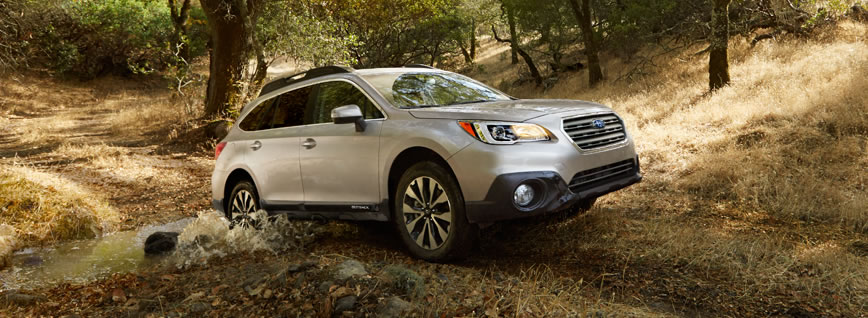
In the winter of 2015, Caroline Simard’s son was diagnosed with a rare form of cancer requiring treatment at CHEO, the children’s hospital for Eastern Ontario. She and her husband realized they would need a reliable all-weather vehicle to make it to her son’s medical appointments and for emergencies. Prior to making their purchase, they asked their seller at Subaru Outaouais if the carmaker had resolved the oil consumption issues with Subaru engines. The salesman, who was experienced selling the brand, assured them oil consumption was history. That February, Mrs. Simard and her husband took delivery of a brand-new Subaru Outback.
Engine problems started early. Three months in, the oil warning light came on. The dealer told them it was normal during “break-in,” and to continue monitoring the oil level and topping up as needed. In August, the dealer started an oil consumption test lasting several thousand kilometers. It revealed that the engine was consuming oil at a rate of one to 1.5L every two months. Due to a missed oil change during the test, Subaru Outaouais required the test be retaken, once again over several thousand kilometers. In November 2017, the engine was replaced at 68,000 km.
In June 2018, smoke started escaping from under the hood and liquid sprayed the windshield (likely engine coolant under pressure). Mrs. Simard had the car towed from the hospital in Ottawa to the dealership. A month later, the oil warning came on again during a family vacation. Contacted by phone, Subaru Outaouais suggested they continue driving and monitor the oil level — the car drank four litres of oil during their trip.

After they returned home, the purchasers met with a manager at Subaru Outaouais and asked to return the vehicle. Although he later denied saying so, the manager appears to have revealed that Subarus with manual transmissions were prone to consuming oil excessively, and that the dealership had two or three similar cases every year. The dealer did not agree to take back the car. More repairs were done to the engine in the autumn and the dealership kept the Outback for over a month over the Christmas holiday period. In January 2019, eleven days after it was returned, the Outback overheated and was returned to the dealership. In March, it overheated again while in Quebec City some 600 km from home.
That spring, Mrs. Simard and her husband made a second attempt to convince Subaru Outaouais to take back their vehicle. The dealer was happy to sell them another car but offered just $14,000 for the Outback– a pittance for a vehicle they had purchased for $33,000. The dealer told them that he would likely sell their car without fixing it. The purchasers rightly deemed the offer inadequate, and the idea of passing off the family’s problem to another unsuspecting customer did not sit easily with them.
In May, Mrs. Simard sent a registered letter to Subaru Outaouais and Subaru Canada asking them to take back the car and pay hefty compensation for damages. The dealership responded by refusing to perform any work on the vehicle until Mrs. Simard signed them a complete release from any legal claims.
The consumer appealed to Subaru Canada for a way forward. Subaru referred them to Otto’s Subaru in Ottawa. (Otto’s Subaru is the most established dealer for the brand in the Ottawa area.) In the summer of 2019, Otto’s kept the Outback for more than three months, and replaced the engine again. Two weeks after the Outback was returned, Mrs. Simard took her car to Sam’s Diesel Service in Ville Saint-Laurent, Quebec. (Owner Sam Kassam is an engine rebuilder who has helped APA members for over 40 years). The visit confirmed the new engine was running fine, but… it was low on oil! Sam also noted that a flywheel cover was missing. On the way home to Ottawa, the engine oil warning light came on again. Over the next couple of visits, Otto’s installed the missing engine part and recorded that the engine was down 2L of oil.
After 4 years and 98,000 km during which the Outback had made 26 visits to Subaru dealers to address high oil consumption, Mrs. Simard had enough. She retained long-time APA lawyer Jacques Castonguay to sue Subaru Outaouais and Subaru Canada to cancel the sale, plus $25,000 in damages.
At trial, Subaru Canada and the dealer maintained that the engine was just fine by November 2019. According to the defendants, topping up with oil “from time to time” was not a big deal. They offered a discount of 20% ($6,757) off the original purchase price, and an additional $6,000 for inconvenience. The dealership said the salesperson no longer worked for them and he was not made available to testify about the (mis)representations he made to secure the sale.
In his decision, Justice Luc Huppé of the Court of Quebec cancelled the sale and awarded the vehicle owners $20,000 in damages for trouble and inconvenience. The high award for damages is very unusual in Quebec, as is a successful cancellation of sale after nearly five years and 100,000 km in service. The Court took into account that the two dealers and Subaru Canada had strung the consumer along for the entire period using a variety of delaying tactics without ever resolving the original complaint (and likely also that the buyer had pursued the repairs diligently throughout).
The backstory
Problems with oil consumption on Subaru engines are well-known and related to the design of the piston rings that provide oil sealing for the engine. Subaru Canada addressed the issue on many 2011-2015 models with a warranty extension to 8 years or 160,000 km, but the APA continues to receive occasional reports of excessive oil consumption on 2016 and 2017 models, more often vehicles with manual transmissions. When rebuilding a Subaru engine, independent experts who specialize in the brand will often replace rings and pistons with improved aftermarket components.
In the Court`s decision, Subaru Outaouais comes off as both untruthful and incompetent. However, dealerships sometimes have limited freedom in situations like this one — they are required to use the original parts and apply the policies dictated by their manufacturer for warranty repairs. And when a dealer is stuck, the easier solution is sometimes to blame the customer rather than taking a loss on the sale.
The case for a Lemon Law
This case illustrates why Canada needs lemon laws. Automakers are simply not prepared to take back seriously defective or unrepairable vehicles, even though provincial product warranties recognize the right to ask for it. Currently, the APA is observing that rapid changes in technology have contributed to all-new vehicles from several automakers sidelined for months while dealers wait for parts and technical support from the factory to resolve problems. At some point the customer deserves an exit when a vehicle is seriously defective..
If you reside in Quebec, you may want to add your name to a petition being circulated in the province. If it proves to be popular enough there is a chance that the government that wins the upcoming provincial election could be convinced to legislate.
The complete decision in Simard vs Subaru Outaouais and Subaru Canada (Case no. 500-22-261759-206) is available online in French [PDF]
